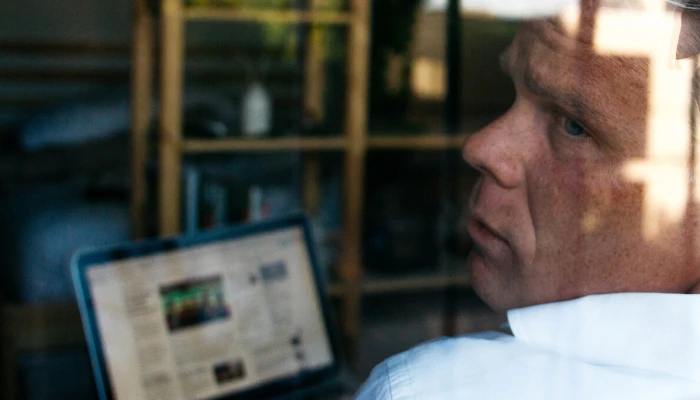Mental health tips for fathers
Fatherhood is a time of significant change for men. Amid the joys of becoming a parent also come some unique challenges, typically stemming from a change in relationship with a partner and a fundamental change of role. These types of changes can impact a father’s mental health.
While becoming a parent is a positive and rewarding time for most people, many experience challenges with their mental health, and the research suggests men are disproportionately impacted. Of the 1 in 5 Australian men who is a father, around 1 in 10 experiences depression and/or anxiety before or soon after their child is born.1
Some other findings of concern:
- 38 percent of new fathers worry about their mental health2
- 1 in 5 fathers report feeling totally isolated in the first year of fatherhood3
- 45 percent of fathers are not aware that men can experience postnatal depression4
- the risk of suicide is higher for men in the perinatal period than at any other time in their lives.5
Almost half of new fathers report feeling stressed or anxious about needing to be ‘the rock’ in their family.
Covid hasn’t helped. Melbourne Institute research from July 2020, during a period of nationwide working-from-home restrictions, found that 25 percent of Australian fathers whose youngest child was aged 0-4 and 33 percent with a child aged 5-11 reported high levels of mental distress, making men the most distressed group in the survey (2 and 3 times higher than the respective distress rates in women). Pre-pandemic, men with children had been the less vulnerable group, with only 7 percent of them having reported high levels of mental distress.6
What are the underlying stressors for men? Significantly, almost half of new fathers report feeling stressed or anxious about needing to be ‘the rock’ in their family.4
Connected to this are financial stressors. For many, fatherhood may involve a switch to being the primary breadwinner for the family, which can bring with it the stress and anxiety of living up to this new role and how this may alter their intimate partner relationships.
For some men, being closely engaged throughout the journey of pregnancy, birth and parenting can be a big departure from their family tradition or culture. Yet in modern Australian life, there is the expectation for fathers to be very involved in these phases of parenting, and some men may feel ill-equipped to take on this new role, adding to feelings of disconnectedness and anxiety. Non-birthing parents, most commonly men, who miss out on this engagement can often be treated as secondary during early parenting – welcome but not active partners.7
In addition, some workplace cultures and attitudes can inhibit men from taking as active a role as they would like as fathers and partners. The uptake of parental leave for fathers remains relatively low and flexible working arrangements are not always accessible to men.
Finally there continues to be a stigma surrounding mental health that prevents men coming forward to seek support when they need it. Many men do not want to admit they have a problem, specifically that they might be ‘failing’ in their new role as a father. Unhealthy coping responses like avoidance and substance use can compound the issues.
What can you do if you are feeling stressed or anxious about fatherhood, or what can you advise someone to support them through this experience? Here are some tips.
- Avoid bottling it up – seek support early
There are many good helplines available:- MensLine Australia on 1300 78 99 78
- Relationships Australia on 1300 364 277
- regional parenting helplines and hotlines
- Lifeline Australia on 13 11 14
- your workplace’s EAP provider.
- Talk with other Dads about their early experiences as a father
You may be surprised how common your feelings are, and sharing those challenges can really help. - Share how you are feeling with your partner
It is likely they may also be experiencing some anxiety and concerns about parenting and will be relieved to be able to talk openly with you. - Explore techniques to reduce anxiety
Research has shown that practices such as mindfulness or meditation are very effective in reducing stress and anxiety. As a starting point, you might like to try the APPLE technique, widely adopted to promote mental health during the UK lockdown. - See your GP
Remember that you can call on your doctor for issues other than physical illness and injury. Your mental wellbeing can also benefit from support – your GP can provide you with direction to other resources to support you. - Be a hugger or cuddler
Don’t underestimate the therapeutic value of giving affection.8 Just gently hugging and cuddling your baby will help to reassure both of you that you matter to each other. It’s a natural way to give and receive affection. It also encourages the release in both of you of the feel-good hormone oxytocin, which plays an instrumental role during the bonding process. - Take some time for yourself
Talk with your partner about alternating parenting responsibilities so that each of you has some time out from caregiving to re-energise and refresh. Also try to take some time out to spend with your partner (ask a family member to babysit for an hour). - Find time for exercise
Regular exercise helps to boost endorphins and other feel-good hormones and helps to reduce stress hormones like cortisol and adrenaline.
Fatherhood is a life-changing experience that has its ups and downs, and it is natural to feel some stress and anxiety along the way. But with a little help and support from others, it can be a wonderful time and an opportunity to thrive in your family relationships. Do not hesitate to reach out for help so that you can continue being the best Dad you can be and enjoying the journey.
En Masse offers a number of family and parenting workshops, along with a men’s health session. Contact us today about a program to suit your audience.
References
- PricewaterhouseCoopers, 2019. The cost of perinatal depression and anxiety in Australia. November 2019. [accessed 8 Jun 2021 at https://gidgetfoundation.org.au/wp-content/uploads/2019/11/Cost-of-PNDA-in-Australia_-Final-Report.pdf]
- National Childbirth Trust (2015). Dads in distress: Many new fathers are worried about their mental health. [accessed 8 Jun 2021 at https://www.nct.org.uk/about-us/media/news/dads-distress-many-new-fathers-are-worried-about-their-mental-health].
- Ipsos Public Affairs. Global Research Report on Male Social Connection – Fatherhood and Social Connections, Movember 2019. [accessed 8 Jun 2021 at https://cdn.movember.com/uploads/images/News/UK/Movember%20Fathers%20%26%20Social%20Connections%20Report.pdf]
- beyondblue, Hall & Partners, Open Mind (2015). Healthy Dads? The challenge of being a new father. August 2015. [accessed 8 Jun 2021 at https://www.beyondblue.org.au/docs/default-source/research-project-files/bw0313-beyondblue-healthy-dads-full-report.pdf?sfvrsn=6f0243ea_0]
- Quevedo L, da Silva RA, Coelho F, et al. Risk of suicide and mixed episode in men in the postpartum period. J Aff Dis 2011;132(1–2):243–46. doi:10.1016/j.jad.2011.01.004.
- Melbourne Institute: Applied Economic & Social Research, University of Melbourne (2020). Behind closed doors: the surge in mental distress of parents. August 2020. [accessed 8 Jun 2021 at https://melbourneinstitute.unimelb.edu.au/__data/assets/pdf_file/0011/3456866/ri2020n21.pdf]
- Healthy Male: Andrology Australia [online]. Plus Paternal: A focus on fathers – Case for change. Melbourne, 2021. [accessed 8 Jun 2021 at https://www.healthymale.org.au/files/inline-files/Healthy%20Male_Plus%20Paternal_Case%20for%20change_Full%20report_Final%20%5BScreen%20reader%20accessible%5D_1.pdf]
- Natural Child Magazine [online]. The daddy blues: adjusting to fatherhood. Author: Venetia Moore, 2008 [accessed 8 Jun 2021 at https://www.life.ca/naturalchild/1408/adjusting-to-new-fatherhood.htm]


